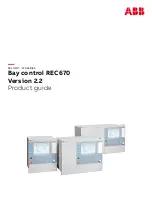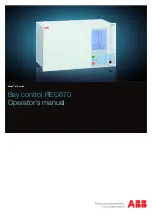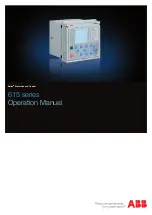
EbV
Product documentation THETA NORM/UNIT
8-31
8.2.2.8
Optimisation for room controller (RC)
The advance time is determined adaptively by the room controller. To this end, a room station THETA RS
must be connected and parameterised as a room controller in the corresponding heating circuit level
(parameter 4 = RC). This function is not available in the room device THETA RFF.
Function:
In the transfer from reduced mode to heating operation, if the optimization is switched
off, a certain period of time elapses before the room temperature reaches the day
setpoint
An advance factor is determined by measuring this time. This determines, how much
time is necessary for heating per Kelvin temperature rise. It is calculated with the
measured time of the last x heating cycles, whereby x is used as a buffer number in
the calculation.
The maximum advance time is calculated with the parameter setting for the
optimization (unmixed circuit or MIX. VALVE-1 or 2 - Parameter 06).
A setpoint adjustment from the advance time is not carried out because the complete
control algorithm is based on erratic setpoint changes.
Conditions:
The optimization only takes place if:
• the controller is in automatic mode.
• the controller is in reduced mode, which means no advance takes place between
2 consecutive heating cycles with different room setpoints.
• the new room setpoint temperature is higher than the setback temperature.
8.2.3
Mixer control
8.2.3.1
Proportional band Xp
When the nominal temperature changes abruptly, the proportional band Xp determines the appropriate
readjustment of the respective actuator according to the new setpoint.
Example:
Consider an actuator moving through an angle of 90° in an action time of two
minutes. When a sudden flow temperature control deviation of 10 K occurs (e.g.
when the system switches from reduced to daytime operation) and the P-band
setting is 5%/K, the actuator has to open by 50 % (= 5%/K x 10K). Consequently, the
duration of the actuation pulse is one minute (= 50 % of the actuator action time).
8.2.3.2
Integral action time Tn
The integral action time (= reset time) determines the dynamic behavior of the controller and thus the time
needed by the controller to adjust for a detected deviation from the nominal setting. The reset time is
constant, independent of the size of the deviation.
Example:
With a sudden flow temperature control deviation of 10 K (e.g. when the system
switches from reduced to daytime operation) and a Tn setting of 7 minutes, the
controller will adjust for the new (10 K higher) flow temperature after the set time.
Содержание Controller Series
Страница 2: ......
Страница 8: ...EbV Product documentation THETA NORM UNIT VI...
Страница 10: ...EbV Product documentation THETA NORM UNIT 1 2...
Страница 16: ...EbV Product documentation THETA NORM UNIT 2 6...
Страница 18: ...EbV Product documentation THETA NORM UNIT 3 2...
Страница 20: ...EbV Product documentation THETA NORM UNIT 4 2...
Страница 70: ...EbV Product documentation THETA NORM UNIT 5 50...
Страница 78: ...EbV Product documentation THETA NORM UNIT 6 8...
Страница 162: ...EbV Product documentation THETA NORM UNIT 10 10...
Страница 170: ...EbV Product documentation THETA NORM UNIT 11 8...
Страница 192: ...PD_THETA NURS_EbV_GB_0460017001_0612 23...
















































